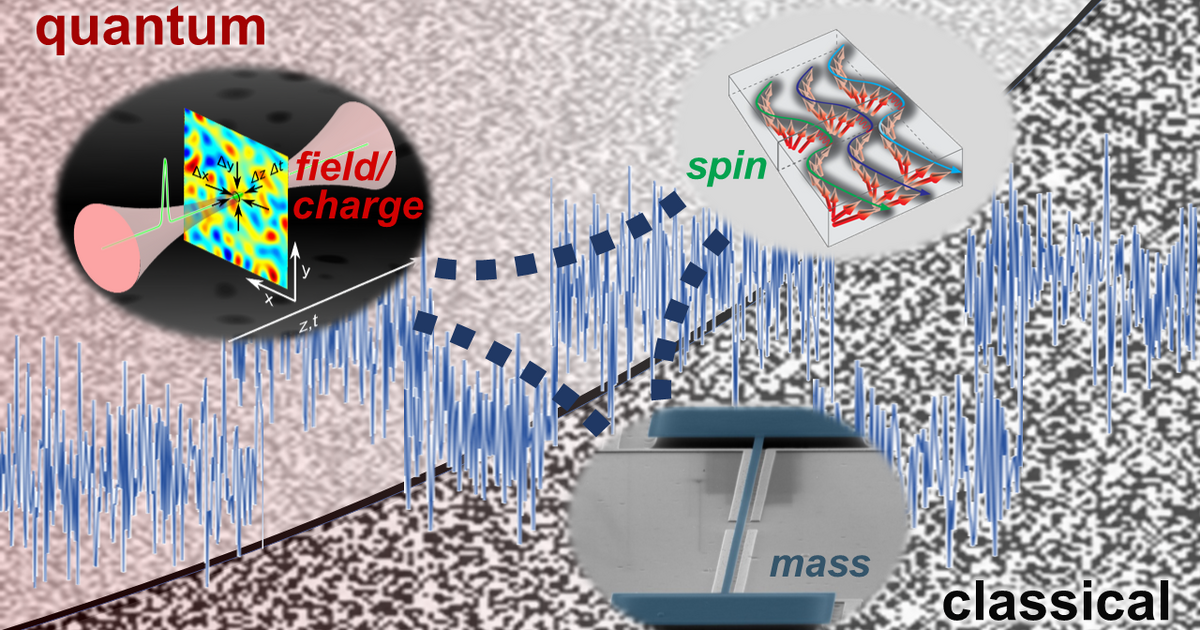
Collaborative Research Center SFB 1432
Fluctuations and Nonlinearities in Classical and Quantum Matter beyond Equilibrium
21 scientific projects in 3 scientific groups: A - field and charge, B - spin, and C - mass
1 Integrated Research Training Group (IRTG FaN)
18 project leaders from University of Konstanz (12 in the Dept. of Physics, 2 in the Dept. of Chemistry, and 2 in the Dept. of Mathematics), University of Göttingen (1 in the Dept. of Physics), and TU Munich (1 in the Dept. of Electrical and Computer Engineering)
Scientific aim
Within the framework of the SFB 1432 we will investigate the dynamics of systems influenced by fluctuations far from equilibrium or determined by strongly nonlinear interactions. In both classical and quantum physics, mostly average quantities have been studied in the past. If fluctuating properties were concerned, they were often investigated within the approximation of local equilibrium or linear response. We will harness recent developments in experiment, simulations, and theory to directly explore statistical properties of physical quantities, concentrating especially on advanced aspects such as non-Gaussian statistics, extreme nonlinearities, quantum fluctuations and entanglement, or completely dissipation-induced dynamics. In all these cases, fluctuations can lead to entirely novel physical phenomena and, potentially, to new functionalities.
Project group A - Field and Charge
Field and Charge: Fields mediate the forces between charges. This fact renders fluctuations of both entities intertwined in a natural way. For example, the elementary transport of charges in confined systems is an obvious candidate to display strong non-Gaussian fluctuations. Charge tunneling is related to induced fluctuating dipoles and therefore establishes a direct link to the radiation field, thus enabling the detection of quantum fluctuations of charges in real time. In turn, the elementary dynamics of field fluctuations themselves can be manipulated by matter, thus opening up the way to address fundamentals of quantum theory also in the fourth dimension: time. We thus propose to study the interplay of charge and field fluctuations on atomic distances and on ultrafast time scales in transport and light-matter interaction.
Project group B - Spin
Spin: Magnetism is an elementary consequence of quantum mechanics. Additionally, many fundamental phenomena related to magnetic ordering emerge from fluctuations. Studying spins and their fluctuations in interacting molecular magnets, 2D and 3D magnetic layers and heterostructures and in bulk crystals leads to new insight into fundamental aspects of many-body physics. Electronic and magnonic spin currents represent basic carriers of information which can be tested in transport and by optical means in a broad range of time scales. The fundamentally nonlinear interactions of spins lead to phase transitions, symmetry breaking and surprising switching phenomena that will be investigated.
Project group C - Mass
Mass: All dynamical motion of matter is accompanied by fluctuations. While these fluctuations are often suppressed, e.g. by cooling, for both weakly and strongly damped systems they take a fundamental role in the presence of external driving and intrinsic nonlinearities. By controlling effects like nonlinear damping, anharmonic potentials or tailored optimal driving, the systems enter new dynamical regimes which will be the central subjects of our investigations. Synergistically combining underdamped mechanics, overdamped colloidal suspensions, and mathematical modelling, we will explore this uncharted territory in classical and quantum matter.

Funded by the Deutsche Forschungsgemeinschaft – SFB 1432, Project-ID 425217212
